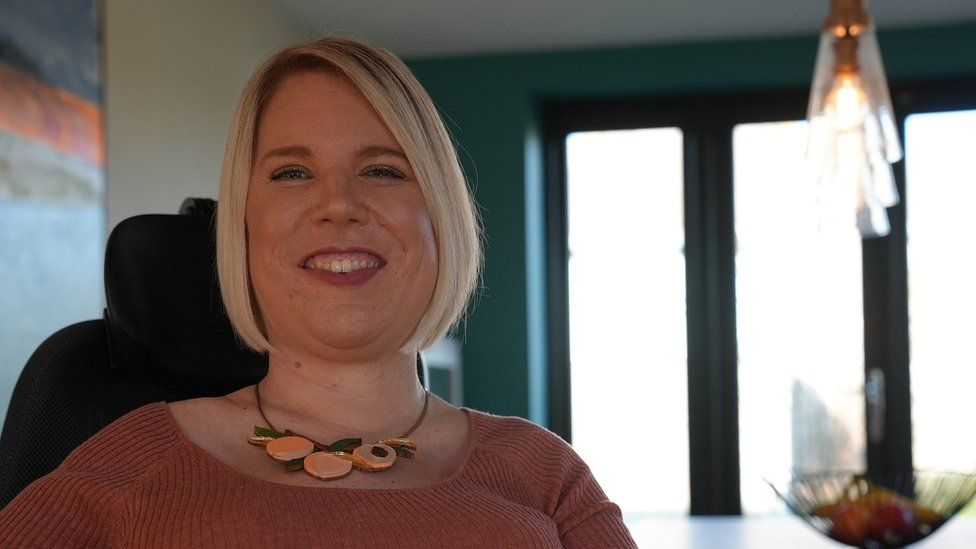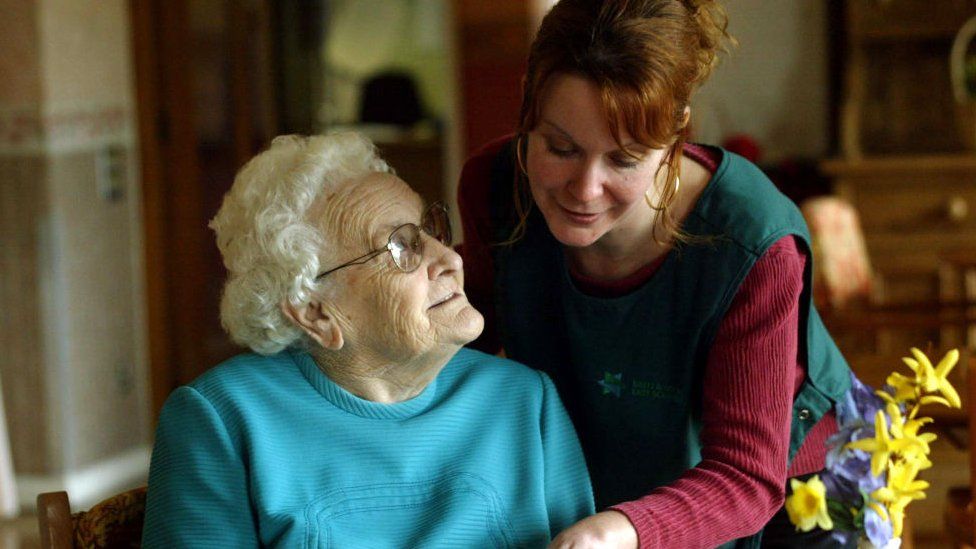The government says an £86,000 cap on how much people pay towards their care is fair.

Disability campaigners are urging the government to rethink its proposed changes to social care funding.
MPs are set to debate the Health and Care Bill, which includes plans to exclude means-tested council support payments from a new £86,000 lifetime limit on costs.
One charity says making disabled people pay for their care is “morally unfair”.
The government says the plans strike a balance between people paying for their own needs, and help from the taxpayer.
About a quarter of a million adults under the age of 65 rely on social care, according to the NHS.
MPs narrowly voted through the Health and Care Bill – despite a significant Tory rebellion – in November last year.
But since then, the House of Lords has sent the bill back to the Commons with amendments to how the £86,000 cap should work.
One amendment set to be debated on Wednesday is about a change to the way in which care costs that go towards the cap are counted.
Campaigners want the £86,000 to be made up of contributions from the local authority and from the individual, rather than only being the amount the individual pays themselves.
They say that if it’s just someone’s individual contribution that counts towards the cap, some working-age disabled adults could spend a lifetime paying towards the cost of their care, with younger disabled adults particularly affected.
Baroness Jane Campbell, who has campaigned for many years for reform on how disabled adults are charged for their care, says the proposals mean young disabled people who have had little or no opportunity to save money, will get less protection than non-disabled people, who might not need social care until much later in their lives.
“Disabled people will be facing this charge from the age of 18,” she says. “To charge any young person a bill of £86,000 for them to pay off for the rest of their lives isn’t a great start in life. This was the government’s one chance to level up for disabled people, and it has not done that.”
Working-age disabled adults are more than twice as likely to live in poverty than those who are not, when disability benefits are discounted from their income, according to the Joseph Rowntree Foundation.
The government says it will be introducing a more generous means-testing limit, which means that more people will be eligible for some state support towards the cost of their care. It says the reforms are fair and will provide certainty and reassurance for people to plan their future.
This video can not be played
To play this video you need to enable JavaScript in your browser.
Author and freelance writer Chloe Timms, 33, hopes for future success that will one day allow her to move out of her parents’ home in Kent and live independently. But she says finances are a “huge burden” on her mind.
Chloe has spinal muscular atrophy and needs help with everyday tasks like washing and dressing. She also uses expensive equipment, such as a wheelchair.
Under current rules she only makes a small contribution towards her care because she doesn’t have savings of more than £23,250 – at which point she’d be expected to pay for all of her care.
Under the new proposals people with savings of between £20,000 and £100,000 will have to make a contribution to their care, but the amount anyone pays for their care will depend on how much a person has in savings.
The government says no-one will be worse off from the proposals, so Chloe should be able to build up more savings than in the past – but she feels that as a young person who needs support to live and work, the opportunity to save isn’t as good as it is for non-disabled people.
If she saves more, she will contribute more – making it hard for her to save up for a deposit: “It does make you feel worthless, because that isn’t an experience that a non-disabled person faces,” she says.
“I couldn’t work without my care, but if I earn more and achieve more, then it’s almost like a penalty. The reality is I don’t get to keep savings, I don’t get to save for my future.”
Jackie O’Sullivan, of the learning disability charity Mencap, said: “Social care is in desperate need of reform, but these care cap proposals do not offer the solution to the problems facing working-age disabled adults, and they need a rethink.”
Disability Rights UK CEO Kamran Mallick said: “There is no doubt that social care needs urgent reform. But it is morally unfair to ask disabled people of working age to pay for it.”
If MPs vote to support the amendment, the government plans to introduce the £86,000 cap from October 2023.
-
- 23 November 2021

- 24 August 2021
